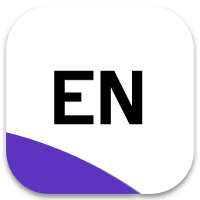
ACRL defined Scholarly Communication as "the system (i.e. formal and informal communication) through which research and other scholarly writings are created, evaluated for quality, disseminated to the scholarly community, and preserved for future use".
We provide these Research Support services:
Why Cite?
What kind of sources should you cite?
There are many citation styles available, depending on the academic discipline involved.
Check with your supervisors, professors, departments, faculty, conference organizers or publishers to find out their preferred citation styles. Once you have determined the style to follow, use it consistently in your paper, bibliography or reference list.
Listed below are the major citation styles. To learn more about them, refer to the Citation Styles Guide.
NUS provides two plagiarism prevention services, i.e. Turnitin and iThenticate. Each serves a different group of users.
(i) iThenticate is for postgraduate students and academic staff/researchers to check their own work
(ii) Turnitin is for instructors to check students' work in a classroom setting
To know more, refer to NUS CTLT's webpages on iThenticate and Turnitin.

The main functions of a reference management software (also known as citation manager or reference manager or citation software or bibliographic management tool) are:
NUS Libraries conduct tutorials on how to use Zotero and EndNote effectively every semester. Watch out for NUS Libraries' newsletter.
![]()
Zotero is a free bibliographic citation management software that allows you to save, collect, manage, cite, and share research sources.
Zotero is available either as a Firefox extension or as standalone software that works with Firefox, Chrome and Safari browsers. It works right in your browser, making it easy to save you citations while you search. Use the Zotero word processor plugins to easily cite your sources and create a bibliography while you work. For further details, please refer to Zotero guide.

EndNote is a desktop-based reference manager, complimented with a web-based version called EndNote Basic. It has over 6000 citation styles that can be used via Cite While You Write (CWYW) in word processing application.
EndNote software is available to NUS staff and students free of charge for both Windows and Mac users. For further details, please refer to EndNote guide.